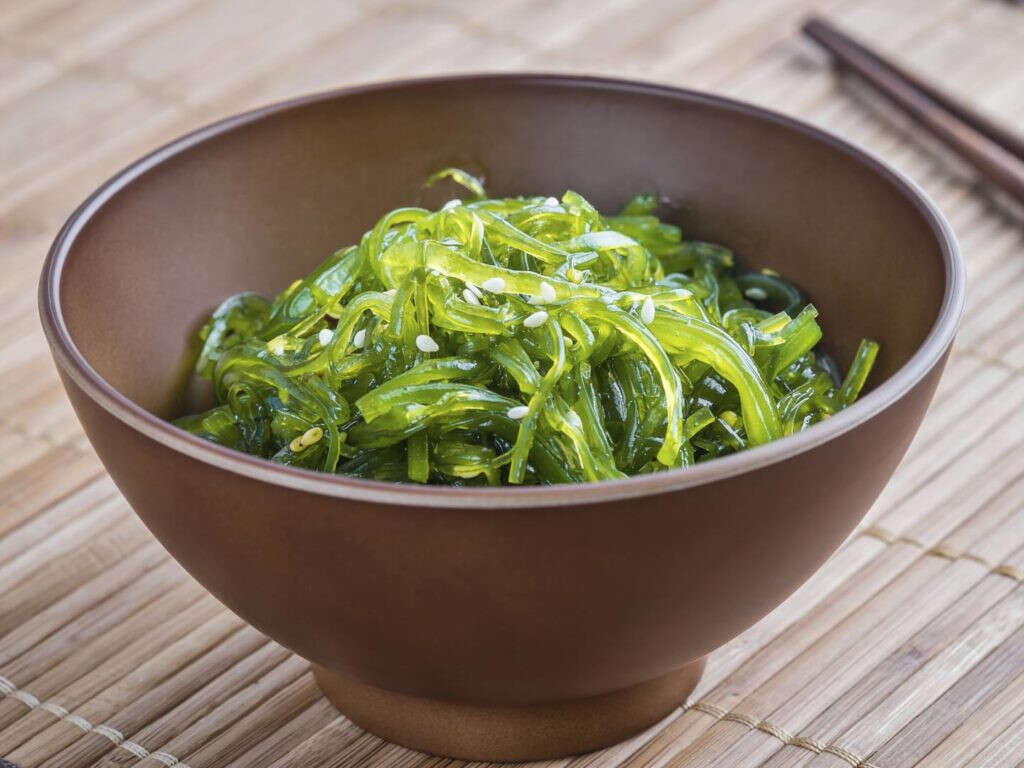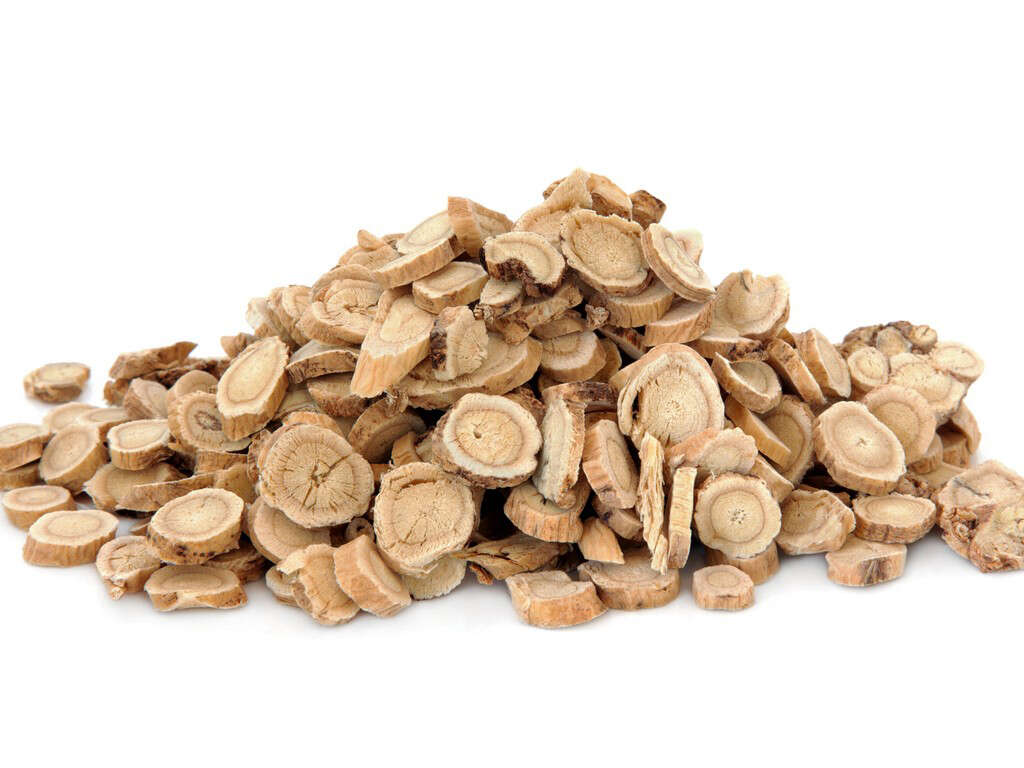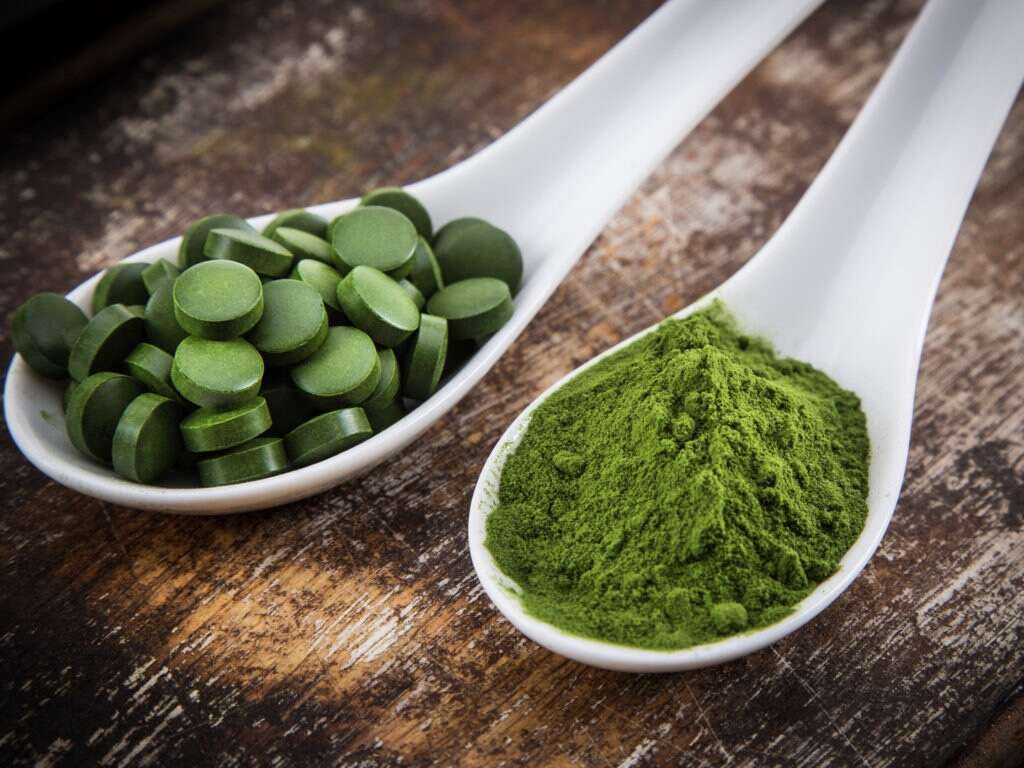10 Benefits of Seaweed
Seaweed is a very popular food that is often a part of Asian cuisine. Anyone who has had sushi has tasted this sea vegetable. Seaweed is a form of algae which grows in abundance in the sea.
There are over 10,000 species of seaweed, the most popular being nori, which is dried in sheets and commonly used to make sushi. Other very common varieties include dulse, arame, wakame, kelp, and spirulina. Seaweed has been used all over the world for culinary and medicinal purposes.
In addition to being used in sushi, these algae can be used in salads and soups, and can even be turned into a low carbohydrate noodle. Due to its health benefits, its popularity is rising in Western populations. Let’s go over some of seaweed’s benefits.
Benefit #1: Rich in Iodine
The thyroid gland is a ductless gland in the neck which secretes hormones that regulate growth and development. They also assist in repairing damaged cells in the body. Our thyroid relies heavily on iodine to undergo numerous functions. Without this element, you may begin to experience weight gain, fatigue, and even abnormal hair growth.
Currently, the recommended dietary allowance of iodine is 150 mcg per day. Seaweed has the unique ability to absorb iodine from the ocean. This means its iodine content is dependent on location and amount of sunlight the algae are exposed to. Nori, the commonly used seaweed in sushi, contains 25% of the RDA at 37 mcg. Wakame contains 93% of the RDA at 139 mcg, making it a great source of iodine.
Benefit #2: Great Source of Vitamins and Minerals
There are numerous types of seaweed. From brown seaweed to red seaweed, each type has its own unique set of nutrients, with vitamins and minerals abundant in all. Generally, even sprinkling dried seaweed on a meal will add numerous vitamins and minerals to your diet.
In one tablespoon, spirulina, a popular species of seaweed, contains only 20 calories and a significant amount of protein, fiber, riboflavin, thiamin, iron, manganese, and copper. In addition, all seaweed contains trace amounts of vitamins A, C, E, and K which come in a way that is simple to add into dishes (at a low caloric count) while enhancing the nutritional value of your meals.
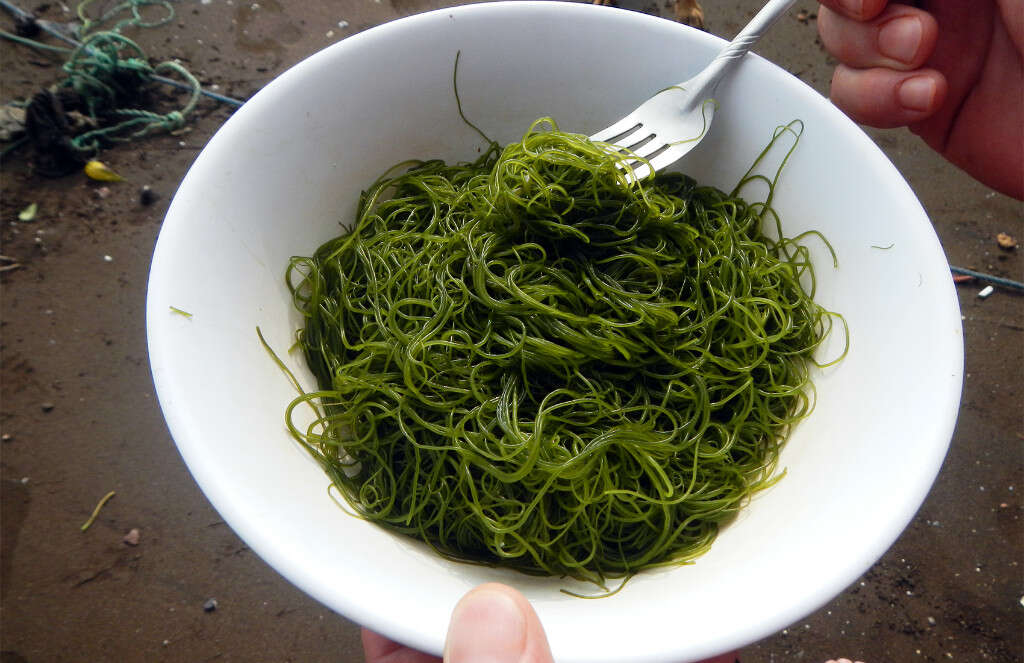
Benefit #3: Rich in Anti-Oxidants
Antioxidants are essential for the human body. They scavenge for free radicals and help prevent over inflammation. This is important because too much inflammation is linked to numerous diseases such as arthritis, cancer, diabetes, and heart disease.
In addition to being rich in vitamins and minerals, seaweed is abundant in antioxidants. The algae contain flavonoids and carotenoids which have been proven to protect your body cells from free radical damage. Wakame, specifically, contains 13.5 times the antioxidant capacity of vitamin E. This antioxidant is known to protect the body cell membranes from outside pathogens.
Benefit #4: Supports Gut Health
Recently, there has been excessive research on the link between gut health and overall health. Though research is still insufficient, many scientists agree that gut health is important to overall physical and mental wellbeing.
It is vital to have “good bacteria” in the gut and keep them in a healthy balance with bad bacteria. Fiber is essential for good gut health because it can serve as a food source for the good bacteria that live there. Seaweed is rich in fiber and polysaccharides, both of which support the growth of good gut bacteria.
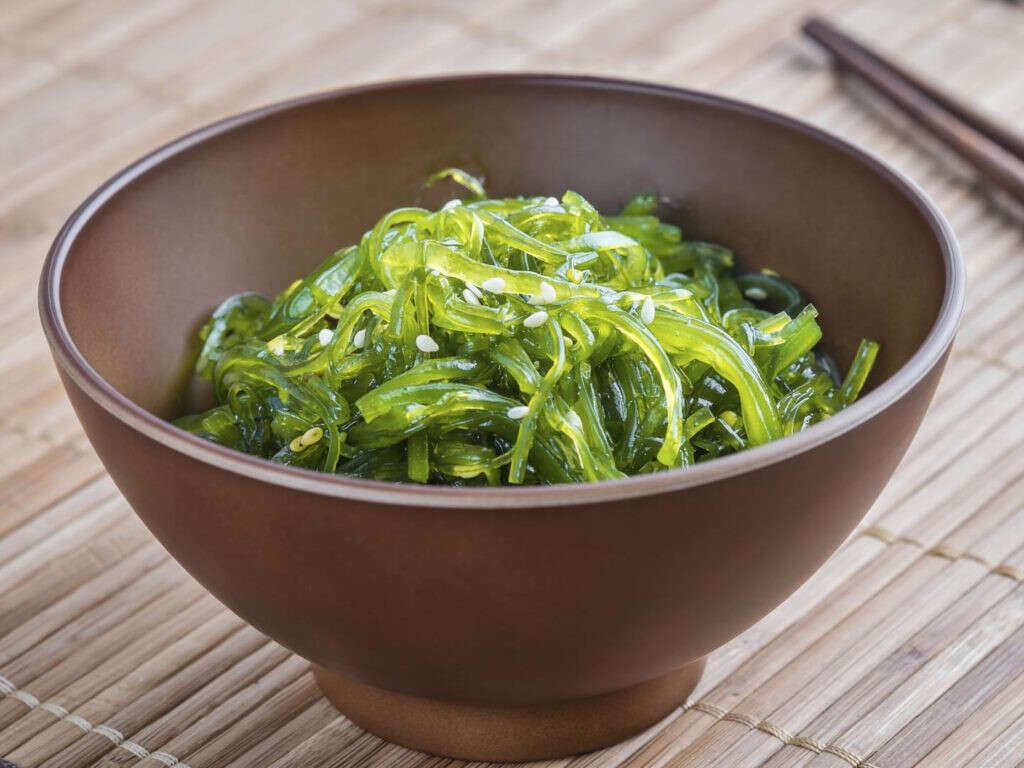
Benefit #5: Absorbs Fat
Due to some of its properties, seaweed may be able to shrink a few inches off your waist line. In a 2010 study, it was reported that algae can reduce the rate of fat absorption by 75%. The mechanism that makes this possible is inhibiting the digestive enzyme lipase which helps absorb the fat we consume.
In a 2014 Newcastle University study, it was reported that adding algae to bread products decreases patients’ overall fat absorption. Other studies found that seaweed contains fucoxanthin, a weight loss ingredient that has been linked to slowing and even preventing the digestion of fat. With the help of these compounds, in addition to a healthy diet, seaweed can certainly help drop those calories.
Benefit #6: Rich in Iron Levels
Iron is essential for red blood cell production and for the movement of oxygen throughout the body. Its absorption is largely helped by vitamin C, and luckily, seaweed is rich in both. The recommended daily amount of iron is 8.7 mg for men and 14.8 mg for women. The reason the numbers are so different between the two genders is mainly due to menstruation.
Of course, different types of seaweed contain a different amount of iron. On average, seaweed has 5.3 mg of iron per 100g of fresh product. When dried, the algae contain 10 times the amount of iron.

Benefit #7: May Reduce Heart Disease
1 in 4 people die from heart disease. This makes the condition very prevalent, affecting numerous families. Some factors that increase your risk of developing heart disease include high triglycerides, high cholesterol, high blood pressure, smoking, and an inactive lifestyle.
Fortunately, seaweed can reduce the blood cholesterol levels, which in turn, can reduce the chance of suffering from heart disease. In an 8-week study, rats with high cholesterol were supplemented with seaweed. As a result, they had 40% lower cholesterol, lower LDL, “bad cholesterol,” and lower triglyceride levels. Thus, seaweed can be very beneficial in combatting heart disease.
Benefit #8: Decreased Gas Emissions
Cows feed a large population of people. From milk to cheese, human kind heavily depends on cows. Unfortunately, cows are one of the largest producers of methane, and too much methane is not good for our environment. The greenhouse gas traps heat in the ozone layer contributing to global warming. It is also important to note that methane is 21 times more potent at trapping heat from the sun than carbon dioxide. Making it a deadly contributor to climate issues.
This is where seaweed comes into play. Cows produce methane when releasing gas. Research has tested numerous different cow feeds that would decrease gas produced from cows. Current research has shown that adding just 2% of seaweed into cow feed reduces methane emissions by 99%. This is huge for farmers who are now being required to find ways to decrease methane production on their farms or face being shut down.

Benefit #9: Reduced Acidification
Seaweed absorbs the minerals from its water supply and then transfers them to whoever consumes the algae. There has been some worry that algae may also absorb toxic substances from its water source, but researches have denied this claim and state that seaweed is safe to eat.
In fact, research shows that algae are very good at filtering out toxic elements such as nitrogen and phosphorous. This means seaweed is not only safe for the user, but it can also absorb and cleanse our oceans from over toxicity of these elements.
Benefit #10: Easy to Grow
Seaweed is filled with flavor and can be easily added to numerous dishes. It is filled with umami, a naturally occurring flavor enhancer that gives kelp its unique taste.
Seaweed, especially when dried, can be eaten with sushi, soups, broths, stews, or rice bowls. In addition, the great thing about seaweed is that it does not require too much attention to be produced. It does not require fertilizer, soil, or sunlight. Currently, Southeast Asia is responsible for 99% of seaweed production, although California is beginning to contribute as well.



